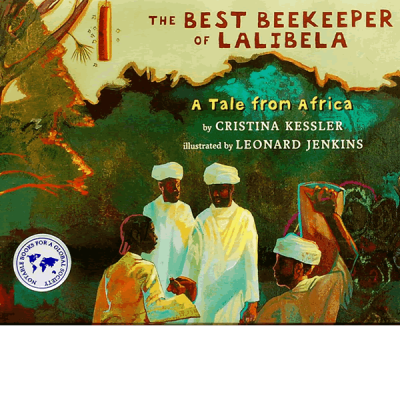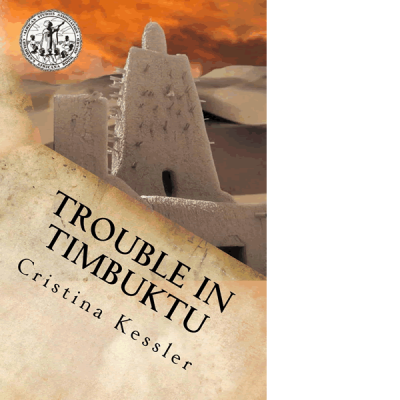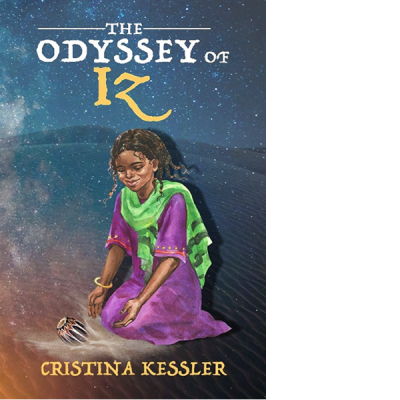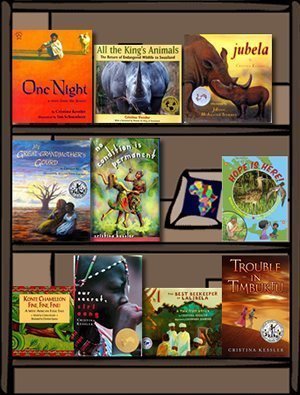Description
This was a beautiful friendship A once-in-a-lifetime friendship Would their cultures, African, and American, so different, tear them apart? We were walking single file to the rice field three mornings later. As we went, Khadi tried to explain to me the secrecy surrounding Sande, but it was difficult. I watched her muscles tense as we walked along, the strange sight of a big bra crossing her usually empty back. She was strutting, and had little patience for my questions. She had never questioned the Secret Society. It was something she learned from her grand-mother and would pass onto her granddaughters. Completely forgetting my promise of months before to not be a know-it-all, I blurted out “But you can’t just believe it all. Just because they tell you to? You’ve got to ask some questions and get some answers. In America–.” Khadi stopped on the trail, and I crashed into her. Turning back to face me, she cut right in, something she’d never done before. “Dis no be America.” In an unforgettable novel that teems with details of African culture and life, Cristina Kessler heroically tackles one of the most important, most controversial issues for women of our time.
From the first moment, the two girls are inseparable–carrying water, collecting firewood, and working in the rice fields together. Everything seems perfect to Jodie until the day the entire village breaks into a wild dance. Suddenly strange things start to happen–Khadi disappears daily, and even Jodie’s mother seems nervous.
“Secret Society, Jodie. Stay away from it,” she warns her. But Jodie wonders what this Society is all about. Surely it can’t hurt anyone if she just checks it out. Or can it?
Book Reviews
School Library Journal
Grade 7 Up-Jodie Nichols, 14, leaves California and accompanies her mother, a former Peace Corps volunteer, on her return to her old village in Sierra Leone to do fieldwork. The simple life, without modern conveniences and modern choices, turns out to be difficult and strenuous.
The setting of this story comes alive; the early vivid jumble of details of sights and smells sorts itself out into a careful, clear description of a vibrant culture. Yet, the conclusion, which will satisfy readers, is too simplistic for the issue; Khadi later writes that she and her friends will not continue the age-old practice on their daughters. There is much to appreciate in this sensitively drawn picture of a faraway part of the world and readers will be left with much to think about in terms of cultural relativity.
-Kathleen Isaacs, Edmund Burke School, Washington, DC
Publishers Weekly
In her first novel, Kessler (One Night) explores sophisticated issues of cultural contrast between life in America and a remote African village through the eyes of a 14-year-old California girl. Providing an educational look into Sierra Leone’s traditions and language, the author creates a likeable main character who is realistically headstrong and good-hearted. When Jodie’s mother receives a grant to study in Sierra Leone, the girl suddenly finds herself living with snakes and scorpions and without electricity or indoor plumbing. She does find a soulmate in Khadi, a local girl who helps her see the beauty of the village and the culture (“Having Khadi, who I could barely talk to, hold my hand, as we walked past huts and goats seemed totally natural”). But when Khadi comes of age and is inducted into the women’s Secret Society, which practices female circumcision, Jodie must decide whether or not to interfere. She wants to spare Khadi the pain (and possibility of infection or even death) but knows that getting involved might alienate her from her friend and banish her and her mother from their community. Jodie’s observations of life in Sierra Leone occasionally read like exoticism (“Khadi, bare-breasted as usual and dripping wet, looked like a picture out of an art book”), and the ending, though realistic, comes a bit abruptly. Overall, the novel does a solid job of combining a complicated issue with a compelling plot. Ages 10-14.
By a reader
Cristina Kessler’s NO CONDITION IS PERMANENT is in the same spirit of her first book, ONE NIGHT; a tale well told. Her book reflects an increasingly shrinking world where western values clash with older, more rooted rituals, where one viewpoint is inherently different from another. Kessler tackles the difficult subject of female circumcision with clarity and understanding of only someone who has lived in West Africa. The frustrations that accompany this situation are transcended by a heartfelt friendship. NO CONDITION IS PERMANENT is a well-developed story that kept this reader’s interest from the first page to the last.






